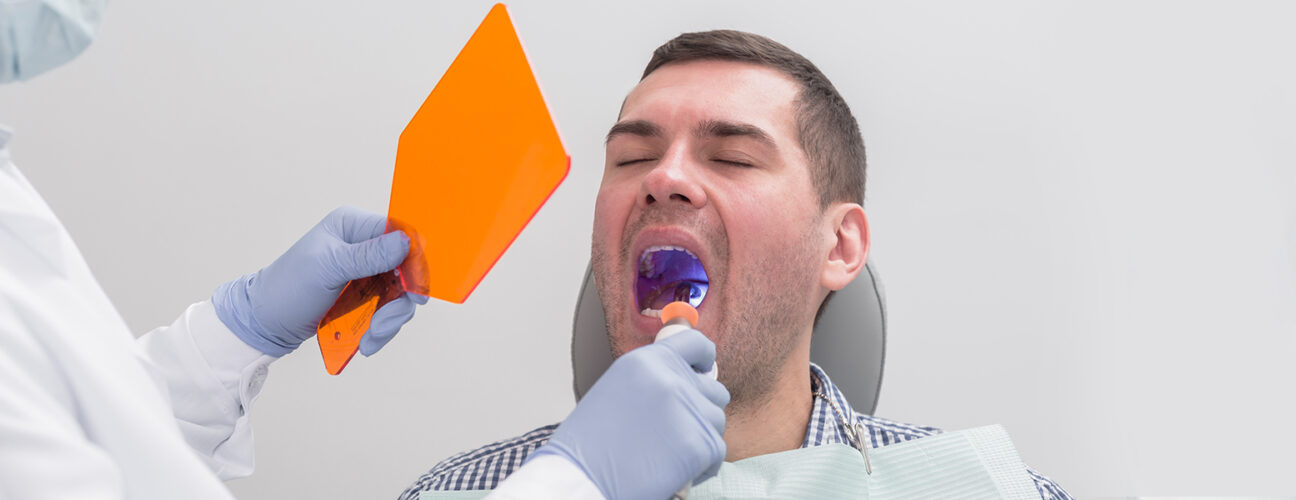The Role of Preventative Care in Oral Cancer Screening for Heart Patients
September 1, 2024Preventative care is the key to keeping good health in all facets of life. When it comes to heart patients, the importance of this principle is amplified due to the interconnectedness of oral and cardiovascular health. Poor dental health has been associated to several systemic diseases, including heart disease, according to research.
Understanding Oral Cancer
Oral cancer is a significant health issue characterized by abnormal cell growth within the oral cavity, including areas such as the lips, tongue, gums, and throat. This condition often presents as persistent sores, lesions, or ulcers that do not heal over time. Key aspects of oral cancer include:
- Definition and Prevalence: Oral cancer encompasses cancers affecting the oral cavity and oropharynx. Globally, it impacts thousands of individuals annually, with survival rates varying based on early detection and effective treatment strategies.
- Risk Factors Associated with Oral Cancer: Several lifestyle factors add significantly to the development of oral cancer. These include tobacco use (in forms such as cigarettes, cigars, pipes, and chewing tobacco), excessive alcohol consumption, and infection with human papillomavirus (HPV). Additionally, prolonged exposure of the lips to sunlight can increase the risk.
Impact of Heart Health on Oral Health
The bond between heart health and oral health is complex and interconnected, influencing overall well-being in various ways:
- Connection Between Heart Conditions and Oral Health: Individuals with heart conditions may experience oral health issues due to medications such as antihypertensives and diuretics, leading to dry mouth or gum overgrowth. Conversely, research suggests that poor oral health, including gum disease and infections, may contribute to an increased risk of heart disease and stroke.
- How Heart Medications Can Affect Oral Health: Certain medications prescribed for heart conditions can have side effects that affect oral health. For example, antihypertensive medications may cause dry mouth, reduce saliva production, and increase susceptibility to dental decay and gum disease.
Benefits of Oral Cancer Screening
Regular oral cancer screenings provide essential benefits for early detection and effective treatment:
- Early Detection and Its Significance: Oral cancer screenings, typically conducted during routine check-ups from a dental office near you, are critical in identifying abnormal tissue changes at early stages, even before symptoms appear. Detecting oral cancer early significantly improves treatment outcomes and increases patient survival rates.
- Screening Methods and Their Effectiveness: Dentists near you employ various effective screening methods, including visual examination, palpation (feeling for abnormalities), and specialized tools such as lights and dyes. These methods help dentists identify suspicious lesions or growths in the mouth that may indicate oral cancer. Early identification allows timely referral to specialists for further evaluation and treatment planning.
People who consume tobacco products (cigarettes, cigars, pipes, chewing tobacco), drink too much alcohol, or have a history of human papillomavirus infection are especially advised to undergo routine screenings. (HPV). Screening intervals may vary based on individual risk factors and medical history, ensuring personalized care.
Preventative Care Practices
Adopting preventative care practices is crucial for maintaining optimal oral health:
- Importance of Regular Dental Check-ups: Tooth decay, gum problem, and oral cancer are just a few oral health problems requiring routine dental visits for effective early detection and treatment. Dentists in 85258 examine patients’ oral health conditions, give thorough cleanings, and offer customized oral hygiene recommendations during these appointments.
- Role of Good Oral Hygiene Habits: Daily oral hygiene habits, including brushing teeth with fluoride toothpaste twice daily, flossing between teeth daily, and using mouthwash, are fundamental in preventing plaque buildup and decreasing the possible risk of gum disease and dental decay. These habits promote overall oral health and contribute to a healthy smile.
Educational resources and guidance from dentists in Scottsdale, AZ, empower individuals to take proactive steps in their oral care routine, promoting long-term oral health and well-being.
Integration of Dental and Heart Care
Collaboration between dental and cardiovascular healthcare providers enhances overall patient care and outcomes:
- Collaborative Efforts Between Dentists and Cardiologists: Coordinated care plans that consider dental and cardiovascular health factors lead to improved patient health outcomes. Dental professionals collaborate closely with cardiologists to ensure comprehensive patient health management, addressing oral health concerns and cardiovascular conditions.
- Coordinated Care Plans for Patients with Heart Conditions: Plans for integrated care that emphasize dental health as a crucial aspect of general health management are beneficial to patients. This integrated approach guarantees early identification and effective management of potential oral health issues and cardiovascular care needs.
Conclusion
In a trusted dental clinic, proactive healthcare measures, such as regular dental and oral cancer screenings, are vital for heart patients to maintain optimal health. Individuals can take active steps to avoid complications and promote overall well-being by understanding the interconnections between oral and heart health. Emphasizing the importance of preventative care improves oral health outcomes and overall health management.
Ready to brighten your smile?
For expert care and personalized services, schedule a dental check-up today at Mercado Dental Care. Discover the benefits of preventative dentistry and explore options like teeth whitening near you. Take the very first step towards a healthier smile and optimal oral health. Contact us now to book your appointment!
